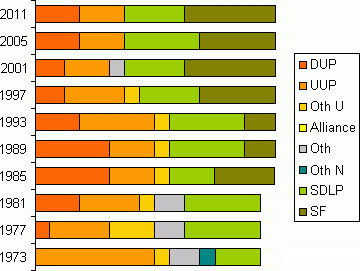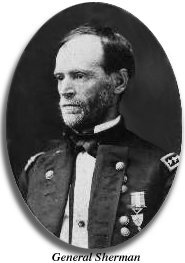Paul W. Schroeder is an American
historian and professor emeritus of history at the
University of Illinois, specializing in the late
sixteenth- to
twentieth-century European international politics,
Central Europe, and the theory of
history. His current research focuses on European international politics,
1648-
1945, emphasizing systemic evolution and development.
He received his doctorate from the
University of Texas at Austin in 1958.
 Awards Fulbright Scholar
Awards Fulbright Scholar in
Austria, 1956-1957
United States Steel Foundation Fellow, 1957-1958
Senior Fellow,
National Endowment for the Humanities, 1973
Senior Fellow,
American Council of Learned Societies, 1976-1977
Fellow,
Woodrow Wilson International Center for Scholars, 1983-84
Visiting Research Fellow,
Merton College, Oxford, 1984
Jennings Randolph Peace Fellow,
United States Institute of Peace, 1992-93
Fellowships Secretary-Treasurer, Conference Group for Central European History, 1967-1968
Research Division Committee, American Historical Association, 1974-1977
Adams Prize Committee, American Historical Association, 1974-1977
Member, Advisory Council, West European Program of the Woodrow Wilson International Center for Scholars, 1984-92.
Member, American Committee to Promote the Study of the Habsburg Monarchy, 1983-88.
Section editor, AHA Guide to Historical Literature.
Member, Advisory Council, German Historical Institute Washington, 1995-.
Books "Metternich Studies since 1925," Journal of Modern History, 33, (Sept. 1961), 237-66.
"Austrian Policy at the Congresses of Troppau and Laibach," Journal of Central European Affairs, XXII, 2 (July 1962), 139-52.
"Austria as an Obstacle to Italian Unification and Freedom, 1814-1861," Austrian History Newsletter, 1962, 1-32.
"American Books on Austria-Hungary," Austrian History Yearbook, II (1966), 1972-196.
"The Status of Habsburg Studies in the United States," Austrian History Yearbook III. Pt. 3 (1967), 267-295.
"Bruck versus Buol: The Dispute over Austrian Eastern Policy, 1853-1855," Journal of Modern History, XL, 2 (June 1968), 193-217.
"Austria and the Danubian Principalities, 1853-1856," Central European History, II, 3 (Sept. 1969), 216-36.
"A Turning Point in Austrian Policy in the Crimean War: the Conferences of March, 1954," Austrian History Yearbook, IV-V (1968-1969), 159-202.
"World War I as Galloping Gertie: A Reply to Joachim Remak," Journal of Modern History, 44, No. 2, (Sept. 1972), 319-344.
"The 'Balance of Power' System in Europe, 1815-1871," Naval War College Review, March-April 1975, 18-31.
"Romania and the Great Powers before 1914," Revue Roumaine d'Histoire, XIV, 1 (1975), 39-53.
"Munich and the British Tradition," The Historical Journal, 19, I (1976), pp. 223-243.
"Alliances, 1815-1945: Weapons of Power and Tools of Management" in Klaus Knorr, ed., Historical Problems of National Security, (Lawrence, Kansas: Univ. of Kansas Press, 1976), pp. 247-286.
"Quantitative Studies in the Balance of Power: An Historian's Reaction," and "A Final Rejoinder," published in the Journal of Conflict Resolution, XXI, No. 1 (March 1977), 3-22, 57-74.
"Austro-German Relations: Divergent Views of the Disjoined Partnership," Central European History, XI, 3 (September 1978), 302-312.
"Gladstone as Bismarck," Canadian Journal of History, XV (August 1980), pp. 163-195.
"Containment Nineteenth Century Style: How Russia was Restrained," South Atlantic Quarterly, 82 (1983), 1-18.
"The Lost Intermediaries: The Impact of 1870 on the European System," International History Review, VI (Feb. 1984), 1-27.
"Oesterreich und die orientalische Frage, 1848-1883," in Das Zeitalter Kaiser Franz Josephs von der Revolution zur Gruenderzeit (Vienna, 1984), Vol. I, 324-28.
"Does Murphy's Law Apply to History?", The Wilson Quarterly (New Year, 1985), 84-93.
"The European International System, 1789-1848: Is There a Problem? an Answer?", colloquium paper presented March 19, 1984 at the Woodrow Wilson International Center for Scholars, Smithsonian Institution, Washington, D.C. (52 pp.).
"The European International System, 1789-1848: Is There a Question? An Answer?", Proceedings of the Consortium on Revolutionary Europe (1985), 1-29.
"The 19th-Century International System: Changes in the Structure," World Politics 39, 1 (October 1986), 1-26.
"Old Wine in Old Bottles: Recent Contributions to British Foreign Policy and European International Politics, 1789-1848," Journal of British Studies 26, 1 (January 1987), 1-25.
"Once More, the German Question," International History Review IX, 1 (February 1987), 96-107.
"The Collapse of the Second Coalition," Journal of Modern History 59, 2 (June 1987), pg. 244-290.
"An Unnatural 'Natural Alliance': Castlereagh, Metternich, and Aberdeen in 1813," International History Review X, No. 4 (November 1988), 522-540.
"The Nineteenth Century Balance of Power: Balance of Power or Political Equilibrium?", Review of International Studies (Oxford), 15 (April 1989), 135-153.
"Failed Bargain Crises, Deterrence, and the International System," in Paul C. Stern et al., eds., Perspectives on Deterrence (New York: Oxford University Press, 1989), 67-83.
"Germany and the Balance of Power: Past and Present Part I", in Wolf Gruner, ed., Gleichqewicht in Geschichte und Gegenwart (Hamburg: Kramer, 1989), 134-39.
"Die Habsburger Monarchie und das europaische System im 19t. Jahrhundert," in A. M. Birke and G. Heydemann, eds. Die Herausforderung des europaischen Staatensystems (Gottingen: Vandenhoeck und Ruprecht, 1989). 178-82.
"Europe and the German Confederation in the 1860s," in Helmut Rumpler, ed., Deutscher Bund und Deutsche Frage 1815-1866 (Vienna, 1990), 281-91.
The Years 1848 and 1989: The Perils and Profits of Historical Comparisons," in Samuel F. Wells, ed., The Helsinki Process and the Future of Europe (Washington, DC, 1990), 15-21.
"Review Article. Napoleon Bonaparte," International History Review, XII (May 1990), 324-29.
"Napoleon's Foreign Policy: A Criminal Enterprise," Journal of Military History 54, No. 2 (April 1990), 147-61.
"Die Rolle der Vereinigten Staaten bei der Entfesselung des Zweiten Weltkrieges," in Kraus Hildebrand et al, eds., 1939: An der Schwelle zum Weltkrieg (Berlin: de Gruyter, 1990), 215-19.
"A Just, Unnecessary War: The Flawed American Strategy in the Persian Gulf." ACDIS Occasional Paper, March 1991. 14 pp.
"The Neo-Realist Theory of International Politics: A Historian's View." ACDIS Occasional Paper, April, 1991. 12 pp.
"Did the Vienna Settlement Rest on a Balance of Power?", American Historical Review, 97, 2 (June 1992), 683-706, 733-5.
"The Transformation of Political Thinking, 1787-1848," in: Jack Snyder and Robert Jervis, eds., Coping with Complexity in the International System (Boulder, CO: Westview Press, 1993), 47-70.
"'System' and Systemic Thinking in International History," Journal of International History Review xv, 1 (February 1993), 116-34.
"Economic Integration and the European International System in the Era of World War I," American Historical Review 94, 4 (October 1993), 1130-37.
"Historical Reality vs Neo-Realist Theory," International Security 19, 2 (Summer 1994), pp. 108-48.
 Joining the UFC
Joining the UFC

 Awards
Awards

 Lefthit
Lefthit